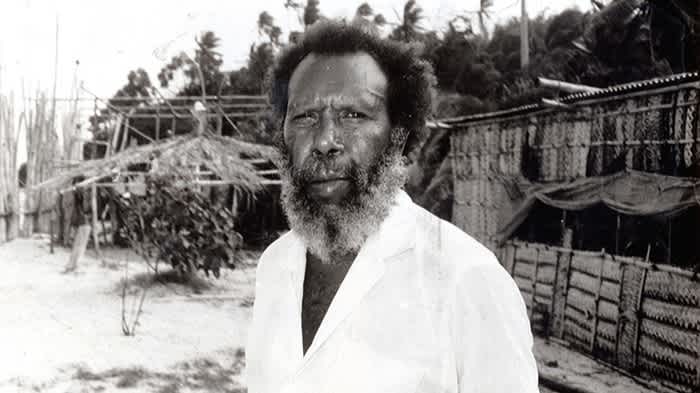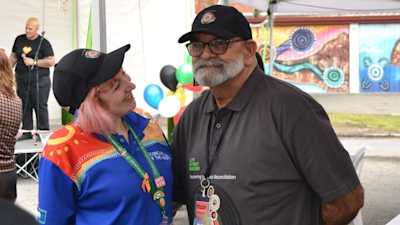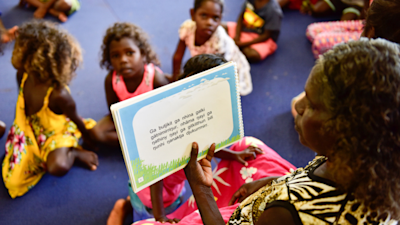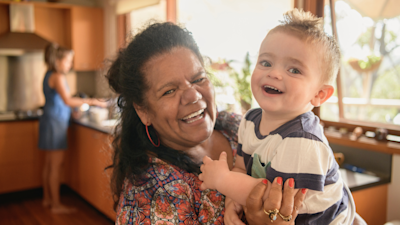Mabo Day is an important day in Australian history, and it is essential for all Australians to understand the significance of the Mabo decision.

Image: Eddie Mabo is wearing a white button up shirt and looking into the camera. Image credit: Jim McEwan/Fairfax
Aboriginal and Torres Strait Islander peoples are informed that this story contains images and names of a person who has since passed away.
Mabo Day (3 June), is an important day in Australia's national calendar, acknowledging the significance of the historic Mabo Decision.
We have put together some key facts to help you learn more about who Eddie ‘Koiki’ Mabo was, and what the landmark Mabo decision is all about.
1. What is the decision?
The Mabo decision was a legal case held in 1992. It is short for Mabo and others v Queensland (No 2) (1992). The legal decision was made by the Australian High Court on 3 June 1992.
The Mabo decision was named after Eddie ‘Koiki’ Mabo, the man who challenged the Australian legal system and fought for recognition of the rights of Aboriginal and Torres Strait Islander peoples as the traditional owners of their land.
2. Who is Eddie Mabo?
Eddie ‘Koiki’ Mabo was a Torres Strait Islander who believed Australian laws on land ownership were wrong and fought to change them. He was born in 1936 on Mer, which is also known as Murray Island, in the Torres Strait.
When he was growing up, life in the Torres Strait Islands was strictly regulated by laws made by the Queensland Government. In his heart, Eddie believed the land he lived on belonged to the Torres Strait Islander people who had lived there for thousands of years. But the Australian Government also believed that it owned the land.
In 1981, Eddie Mabo made a speech at James Cook University in Queensland, where he explained his people’s beliefs about the ownership and inheritance of land on Mer. A lawyer heard the speech and asked Eddie if he would like to challenge the Australian Government in the court system, to decide who the true owner of the land on Mer was, his people or the Australian Government. And this is exactly what Eddie Mabo did.
3. Why was the case so important?
Aboriginal and Torres Strait Islander peoples occupied Australia for 40,000 to 60,000 years before the British arrived in 1788. They spoke their own languages and had their own laws and customs. They also had a strong connection to ‘country’ – the Australian land.
When the British arrived, they declared that Australia was terra nullius (empty land, or land that belongs to nobody). As a result, Aboriginal and Torres Strait Islander peoples’ occupation of, and unique connection with, the land was not recognised, and the British took the land without agreement or payment.
The Mer Islanders decided they would be the ones to challenge the legal principle of terra nullius in the High Court and that Eddie Mabo would be the one to lead the action.
4. What was the result?
The Mabo case ran for ten years. On 3 June 1992, the High Court of Australia decided that terra nullius should not have been applied to Australia. This decision recognised that Aboriginal and Torres Strait Islander peoples have rights to the land – rights that existed before the British arrived and still exist today.
The Mabo decision was a turning point for the recognition of Aboriginal and Torres Strait Islander peoples’ rights because it acknowledged their unique connection with the land. It also led to the Australian Parliament passing the Native Title Act in 1993.
Eddie Mabo never found out the result of his legal case. He died in January 1992, just five months before the High Court made its decision.
5. What does native title mean?
Native title is the legal recognition that some Aboriginal and Torres Strait Islander peoples have rights to, and interests in, certain land because of their traditional laws and customs.
The rights granted by native title are not unlimited – they depend on the traditional laws and customs of the people claiming the title. Other people’s interests in, or rights to, the land are also relevant and usually take precedence over native title.
To have native title recognised under the Native Title Act 1993, Aboriginal and Torres Strait Islander peoples must prove that they have a continuous connection to the land in question and that they have not done anything to break that connection (such as selling or leasing the land).
Native title can be recognised in different ways. Aboriginal and Torres Strait Islander peoples may be granted the right to live on the land; access the area for traditional purposes; visit and protect important places and sites; hunt, fish, or gather traditional food or resources on the land; or teach Aboriginal and Torres Strait Islander laws and customs on the land. In some cases, native title can include the right to own and occupy an area of land or water to the exclusion of all others.
6. Why is native title important?
Native title is important because dispossession and denial of land was the first act in the relationship between Aboriginal and Torres Strait Islander peoples and Europeans, setting the tone for the events that followed.
The Native Title Act 1993 is important because it determines how native title interests are formally recorded and recognised. It sets the rules for dealing with land where native title still exists or may exist. Today, native title has been recognised in more than two million square kilometres of land.
Indigenous land use agreements set out arrangements between native title holders and others regarding who can access and use the land in question. These agreements play an important role in making native title work for all Australians. There are currently 967 registered Indigenous land use agreements in place.
We believe that Reconciliation must live in the hearts and minds of all Australians, and through our Elevate Reconciliation Action Plan (RAP), Life Without Barriers is committed to an ongoing journey towards Truth Telling, Self Determination and Reconciliation.
Life Without Barriers acknowledges Aboriginal and Torres Strait Islander peoples as the Traditional Owners and Custodians of this country and acknowledges their connection to land, water and community. We pay our respect to them, their cultures and customs and to their Elders past, present and emerging.


